What is Low Impact Camping?
- Camping is a great way to get out in nature, but it can take a major toll on the environment.
- Cooking gas, campfires, plastic waste, human waste, off-trail tramping, and toothpaste are just some of the things that can wreak havoc on an ecosystem.
- These eco-friendly camping tips will help you enjoy nature without unwittingly harming it.
For many an outdoors enthusiast, the return of warm weather signals one activity in particular: camping. People flock to national parks, the backcountry, or their own backyards to roast marshmallows over open fires and sleep among the chorus frogs.
But some behaviors associated with this well-intentioned pastime—for instance, spitting toothpaste on the ground or chopping firewood—can have grave consequences ranging from pollution to habitat loss, soil erosion to water contamination. Consider this your guidebook to responsible, sustainable, low-impact overnight outdoor recreation.
1. Minimize Your Plastic Use
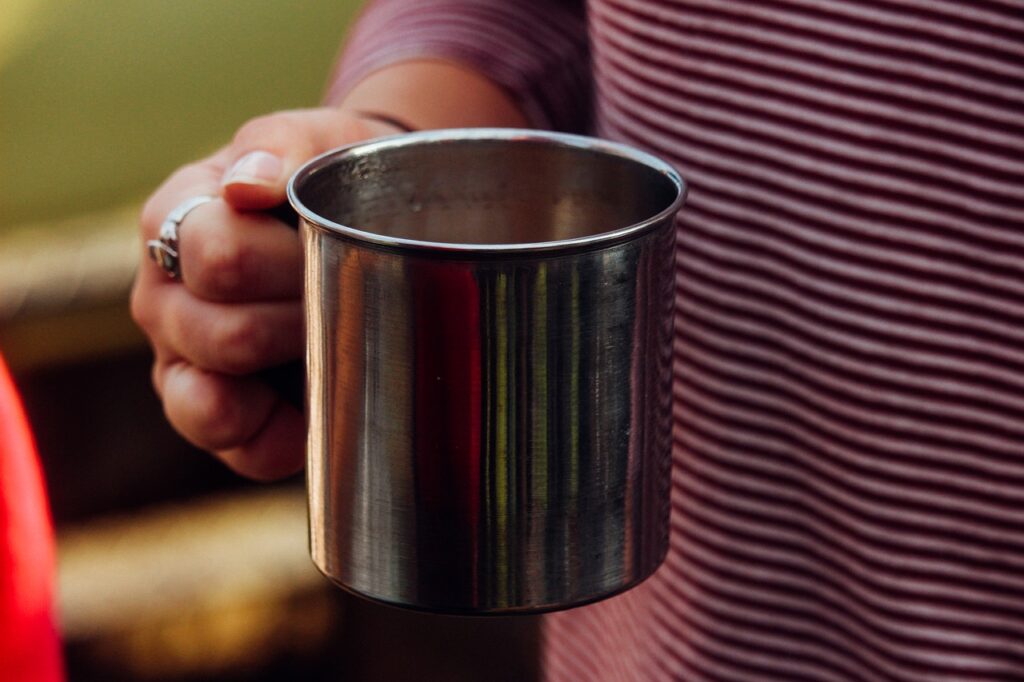
Plastic is rife in the camping sector. It’s lightweight and disposable, meaning weightless packs and little cleanup at an extraordinary cost to the environment.
The biggest problem here is single-use plastics—wet wipes, disposable cutlery and crockery, individually wrapped snacks, and dehydrated meals packed in plastic. With a little extra effort, the “forever material” can be avoided by:
- Preparing meals of grains, dried beans, and vegetables at home and packing them in stainless-steel lunch boxes.
- Using reusable silicone bags for snacks instead of single-use sandwich bags.
- Buying camping equipment made of more sustainable lightweight materials, like wooden utensils, aluminum plates, and metal straws.
- Using a reusable water bottle and filtering water with a charcoal stick when necessary.
2. Cook Responsibly
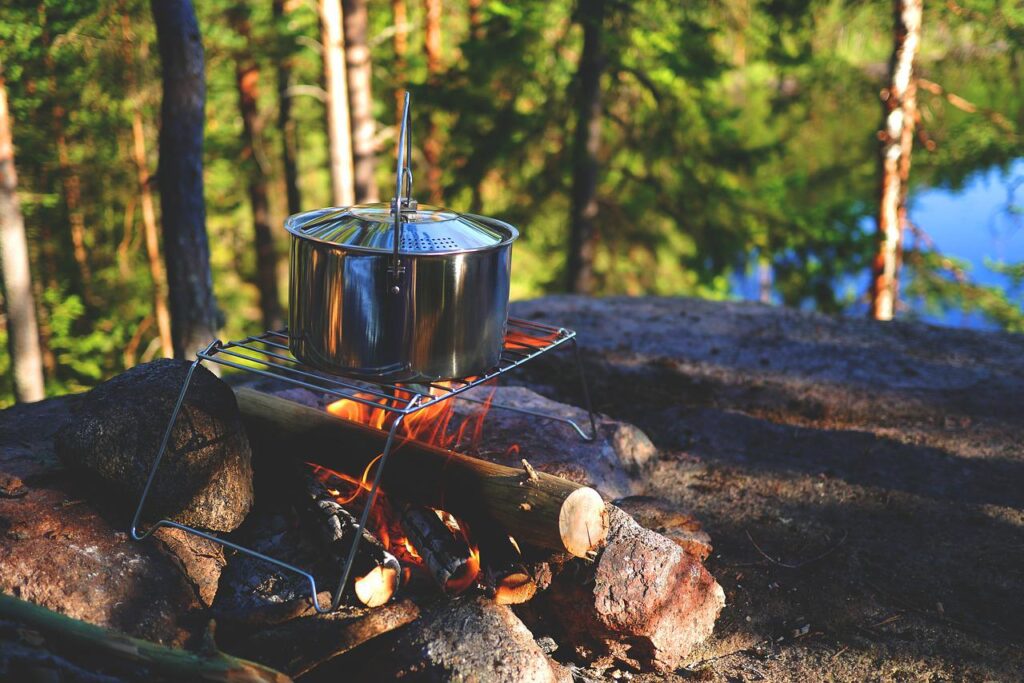
There are a few ways to cook while camping, including with a gas stove, over an open fire, or on a disposable charcoal barbecue (which should be completely avoided).
Gas stoves burn either butane or propane, both of which are produced as byproducts of refining natural gas or petroleum. When burned, they emit carbon dioxide—albeit low levels of it, compared to other gas types. They do not emit nitrogen oxides, methane, or sulfur dioxide.
Building a campfire may seem like the cleaner option, but wood actually contains more carbon and emits more CO2 when burned. The smoke from it also reduces air quality, and the fires themselves can lead to soil erosion. Never start fires where there are wildfire risks, and always put them out completely before leaving or going to sleep. Leave No Trace says to build fires only where there is sufficient wood “so its removal will not be noticeable.”
The most eco-friendly way to cook while camping is—hands down—via portable solar oven. The one by GoSun weighs only two pounds and takes 20 to 45 minutes to cook using just the sun.
3. Stay on the Trail
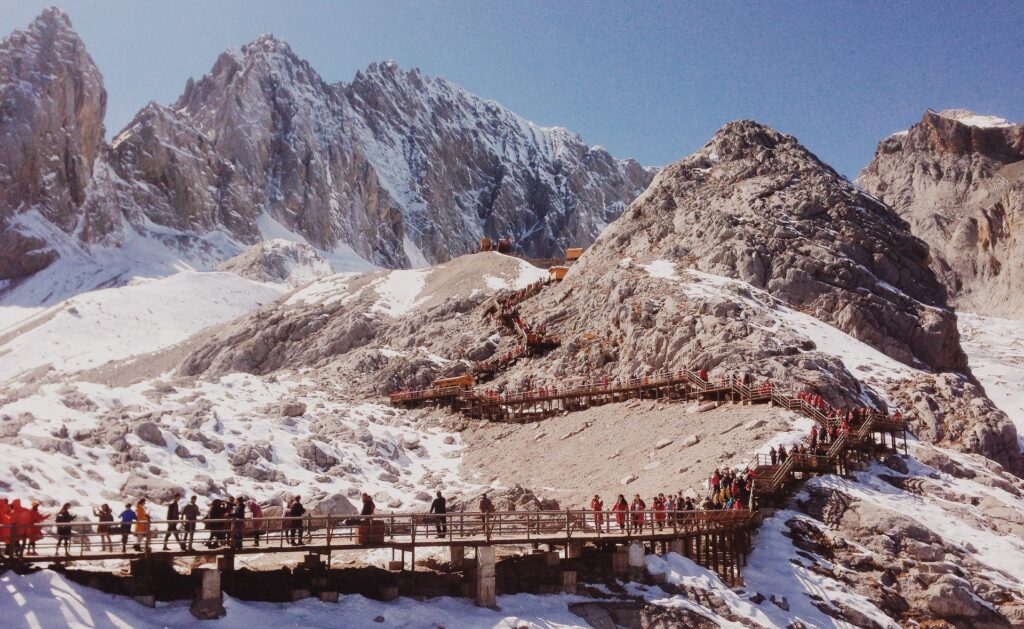
Camping and hiking go hand in hand. Whether you’re planning to wild camp on a backpacking excursion or use your campground as a basecamp for day trips, it’s important to stick to designated trails.
Diverging from constructed paths puts vegetation and wildlife habitat at risk. It causes erosion and could even contribute to the spread of invasive species. “It is better to have one well-designed route than many poorly chosen paths,” Leave No Trace says. The same sentiment goes for pitching your tent—stick to designated lots and/or durable surfaces.
4. Pack Biodegradable Toiletries
Biodegradable toiletries are non-negotiable on camping trips. Otherwise, harsh chemicals wind up in the soil and, eventually, freshwater systems, where they can harm innocent critters. Make sure to wear natural, reef-safe sunscreen and bug spray. Use only biodegradable soap (all-purpose is best), toothpaste, and deodorant.
Try to avoid letting any soap or toiletries go on the ground (spit your toothpaste into your waste bag, etc.). Always catch your wastewater from dishwashing, laundry, handwashing, or otherwise in a container and dispose of it in the campground’s designated utility sinks where available.
If not available, Leave No Trace says to first catch food particles (from dishwashing) with a mesh strainer, disposing of them in the bin, then scatter the rest of your wastewater—called “grey water”—at least 200 feet from camp or streams.
5. Pack Out All Trash
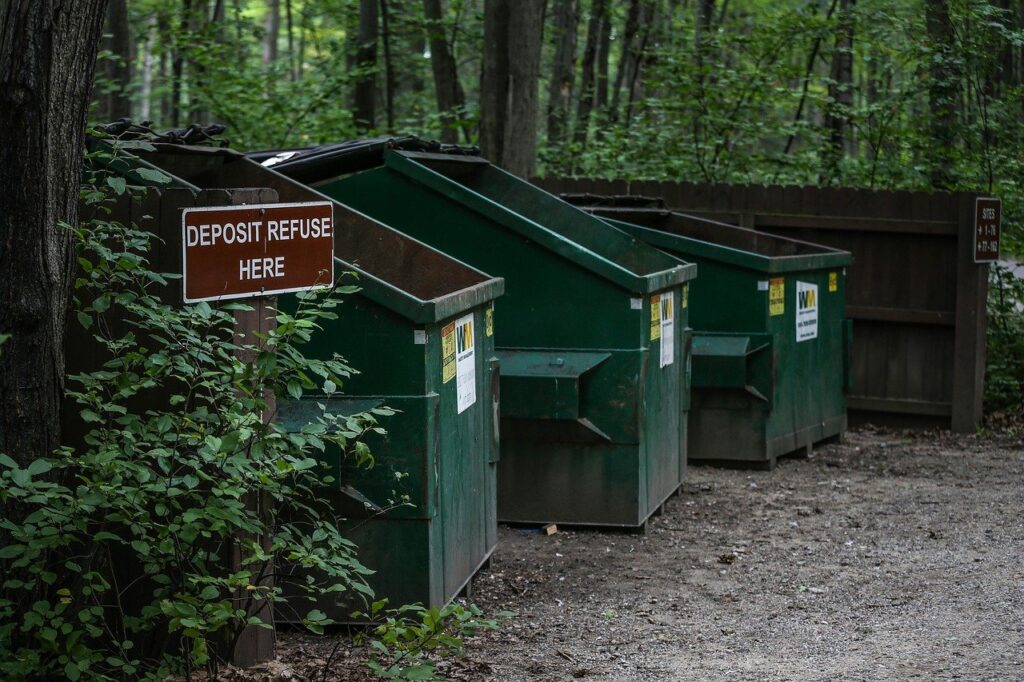
The most important principle to remember while camping is to pack every little bit of trash back out with you. That includes food scraps, human waste, and other things you might deem biodegradable.
Be sure to bring a few spare compost bags to keep “wet” trash (such as food scraps and toothpaste) separate from dry plastic and paper trash. Compile it all in a bag that closes, such as a plastic zip-top bag that you can clean out and reuse later.
Do not burn anything besides wood, plain cardboard, and paper.
6. Use Proper Bathroom Etiquette
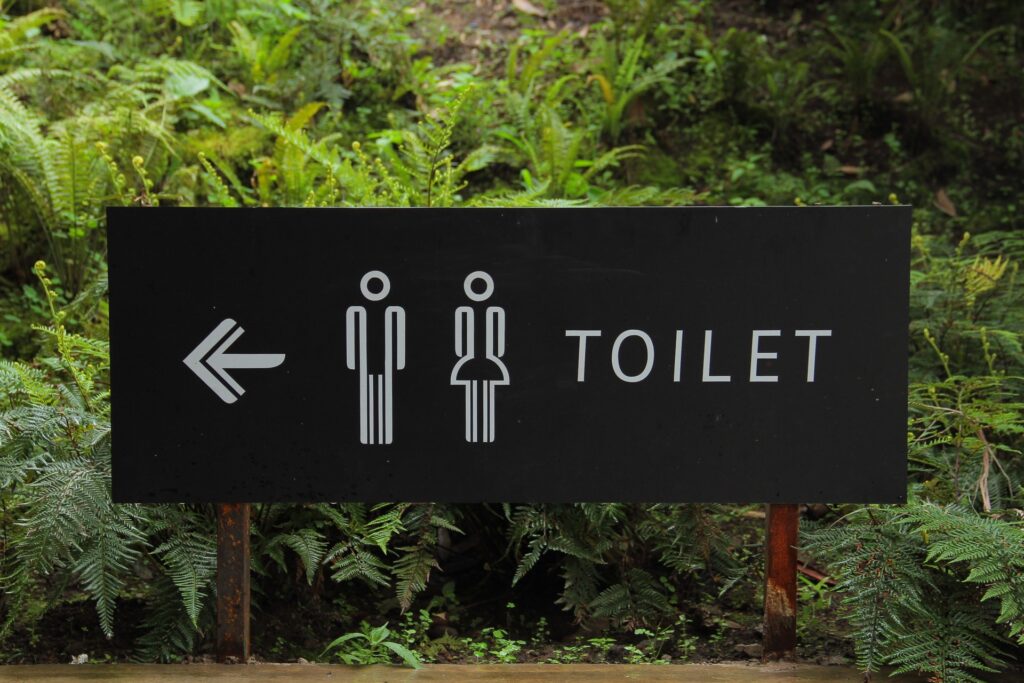
Though they may vary greatly in quality, almost all commercial campgrounds have some sort of toilet facility. This isn’t the case for backcountry camping, though, and there are a few rules to remember when popping a squat in the wilderness:
- When nature of the no. 2 variety calls, make sure you go at least 200 feet (70 paces) from water, trails, and camp. Dig a hole six to eight inches deep and bury your waste afterward. In areas of higher traffic, best practice is to bag it up and pack it out.
- You can urinate almost anywhere in the wild because urine has little impact on soil quality. It could attract wildlife, however, so best to dilute it with water.
- Toilet paper must be buried with waste or, better, packed out. If buried, use fragrance- and chemical-free toilet paper only.
7. Rent or Buy Secondhand Gear
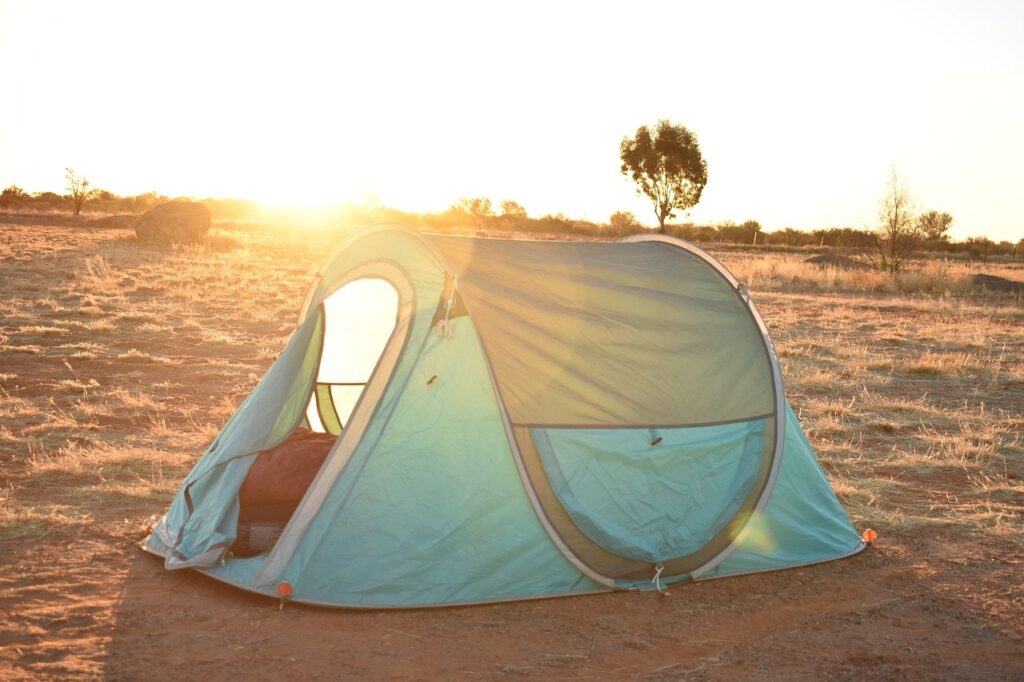
Outdoor gear like tents and sleeping bags are made mostly of synthetic fibers that release microplastics into the environment. These materials are tough to recycle, and because they’re put through the wringer—Rain! Mud! Stray campfire sparks!—they quickly accrue wear and tear.
If you’re in need of gear for your next camping trip, consider renting the items you won’t get much use out of. U.S.-based rental companies include REI and Arrive Outdoors. If purchasing, choose refurbished or secondhand gear—you can also do this through trusted retailers like REI Re/Supply, Requipper, and Patagonia Wornwear.
Once you secure your kit, keep it nice. Repair rips. Replace tent poles and zippers. Don’t just bin it when it breaks.
Featured Camping Essentials:
- ECOlunchbox reusable stainless-steel containers
- Stasher rainbow silicone snack bags on EarthHero
- Five-piece fair trade mango wood travel utensil set on Shop Shuki
- Metal straw set on Shop Shuki
- Bamboo charcoal filter stick on Zero Waste Store
- GoSun Go portable solar oven
- Mountain Mel’s herbal sun care on DoneGood
- Mountain Mel’s moisturizing insect deterrent on DoneGood
- Dr. Bronner’s unscented pure-castile liquid soap on Hive
- Unpaste tooth tabs on Zero Waste Outlet
- Natural deodorant on Zero Waste Outlet


